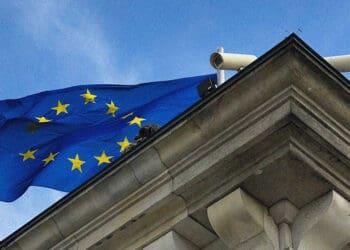Varonis’ Rob Sobers gives an update on the state of GDPR compliance, along with lessons for the compliance practitioner one year in.
It’s important for both individuals and businesses to have a clear understanding of the goals of the GDPR and how it’s enforced. The GDPR applies to any business or organization operating within the EU, as well as any businesses outside of the EU that interact or offer goods or services to businesses and customers in the EU; essentially, almost every company that does business internationally is going to be affected.
GDPR needs to be taken seriously, as there’s a lot at stake. Businesses need to take complete ownership of compliance to the GDPR, being clear and transparent with their customers and assuring them that they can be confident in the protection and private use of their data.
Effects of the GDPR
Some of the effects of the GDPR include:
Increased awareness of the importance of protecting personal information, such as the CCPA (California Consumer Privacy Act), which was enacted in June 2018. Other U.S. states and countries worldwide are in the process of implementing privacy legislation.
Extensive use of third-party organizations and data experts. In order to ensure that GDPR is legal, over $7.8 billion has been spent by Fortune Global 500 companies to prepare for this legislation.
As the deadline for GDPR compliance approached, at the end of 2018 only 50 percent of organizations and businesses felt they were prepared. In the first year of compliance, few fines have been issued to noncompliant companies, allowing them further time to implement GDPR procedures. It’s been difficult for enforcement agencies to keep up with maintaining compliance and following up with complaints or data breaches.
The Effects of Noncompliance
Organizations and companies can choose to opt-out of GDPR compliance. However, they’ll have two options should they elect for noncompliance:
- dumping all data that is noncompliant, or
- not interacting or doing business with EU citizens.
In the first year of GDPR compliance, the enforcement of privacy laws has been lax. Although Google was fined $57 million, this was more of a wake-up call to the tech giants that reviewing and aligning with GDPR regulations should be top priority.
Law and marketing agencies have also been impacted by the GDPR. Companies and organizations, no matter how small, have had to rely on their own or hired legal and marketing teams to provide them with expert advice on data privacy. In the U.S., large corporations spent approximately $7.8 billion preparing for GDPR legislation.
Now that the GDPR is in effect, companies will need to ensure their budget has room for both preparation and enforcement of GDPR rules.
User Confidence in GDPR
Consumers are on the fence about GDPR laws, with 45 percent of EU citizens still concerned about their right to privacy. One of the main intents of the GDPR is to put users in control of their own personal information. Where pre-GDPR users had little to no say in what information was collected and how this data was used, now that the GDPR is in effect they have this control.
For many users, however, what to do with GDPR rules and their own personal privacy is still confusing. Managing their privacy settings and understanding the effect the GDPR has on the way they use the internet is taking time to understand.
When it comes to statistics about user interaction with the GDPR, the numbers are favorable for this privacy legislation. According to a study done by the DMA in the U.K., 62 percent of consumers indicate that they’re more comfortable sharing their personal data with the GDPR in place. And 57 percent of consumers are in support of being able to use GDPR guidelines to decide what ads and offers they receive from companies.
Enforcing the GDPR
Auditing agencies, such as the European Data Protection Board (EDPB) and The European Commission (EC) are the authorities enforcing the GDPR. Likewise, each of the 28 EU Member States have their own agency to enforce the GDPR.
Companies who haven’t complied with the GDPR may be subject to fines and penalties. Companies and users want better enforcement of these penalties. To date, enforcement has not been as rigid as it could be, particularly when it comes to larger corporations, many of which are still out of compliance. This has been upsetting to users who expect to see the fines applied when privacy rules are not followed. Also disappointed are those companies and organizations that spent a great deal of money and time ensuring they met the deadline for compliance.
No companies have yet to incur the maximum fine – €20 million or 4% of annual turnover – however, the GDPR did make an example of Google and Facebook, with Facebook fined $645,150 for giving their app developers access to user information.
After one year of GDPR legislation, according to the European Data Protection Board (EDPB), there have been over 144,000 complaints and queries and over 89,000 reported data breaches. These numbers are expected to increase in the coming year.
Lessons from the GDPR
In the past year companies, organizations, and users have learned a lot about GDPR privacy legislation:
 Infographic courtesy of Varonis
Infographic courtesy of Varonis
The GDPR has dramatically affected what organizations can and can’t do with personal user data. These new laws for privacy will continue to grow and change in the coming years, taking several years for some organizations to catch up with the challenges. The end result, however, is the protection of data for all EU citizens, with non-EU countries now taking a closer look at data security and developing similar legislation.



 Rob Sobers is a software engineer specializing in web security at
Rob Sobers is a software engineer specializing in web security at 










